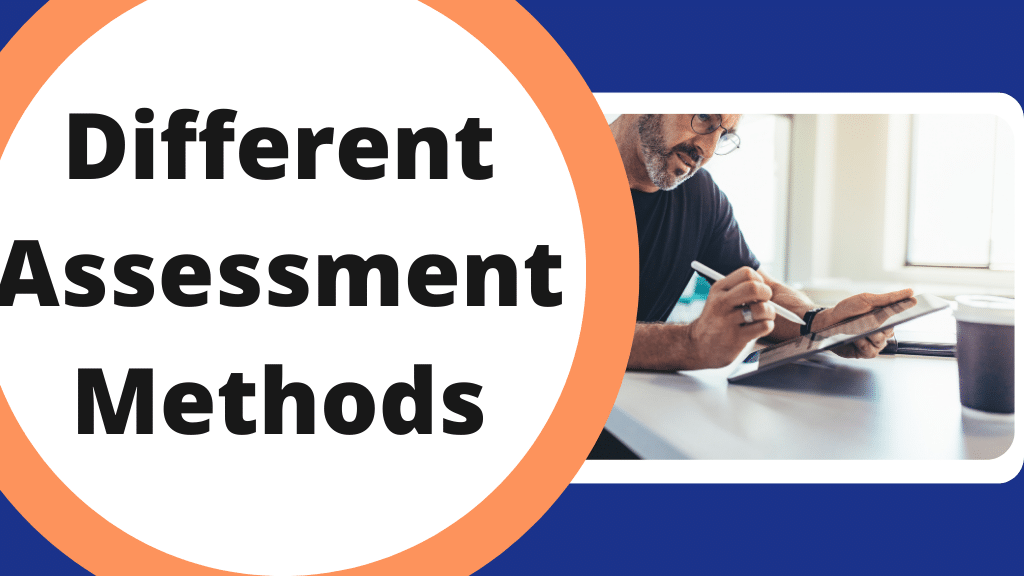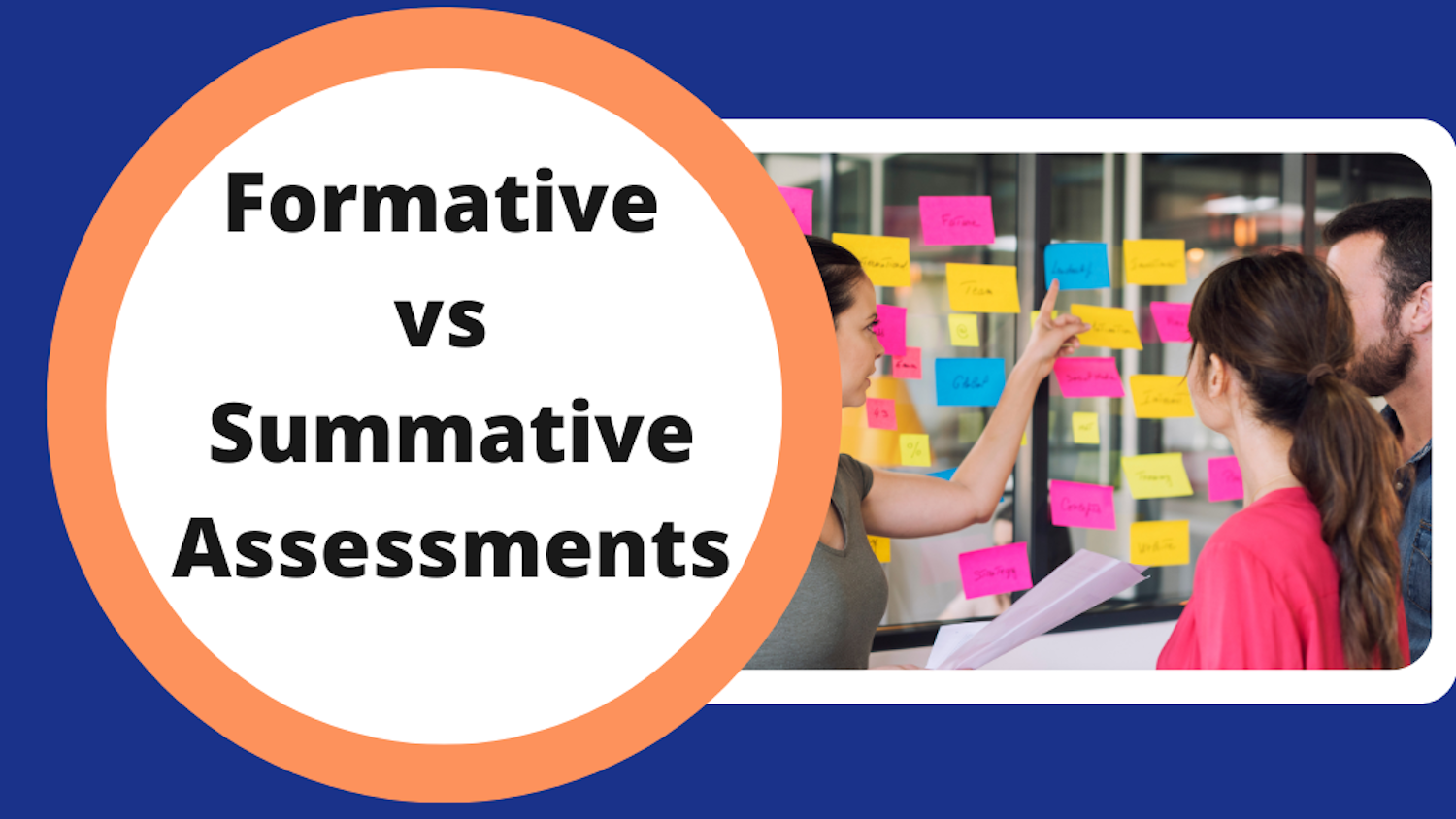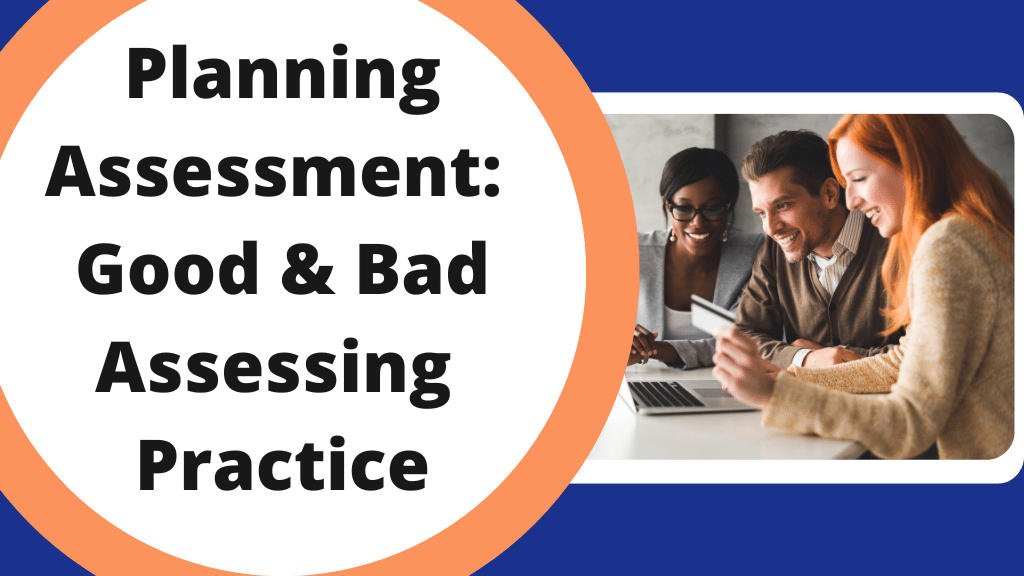February 1, 2024
Different Types Of Assessment Methods

If you’re already an assessor or are thinking about becoming an assessor, then you’ll already know that there are a variety of methods of assessment. Sometimes, these are set out by the awarding body, especially in cases where candidates are expected to carry out specific tasks to pass or show that they can do something within a timescale. However, in most cases, it’s up to you, the assessor, to choose and use an appropriate assessment method.
The Different Methods Of Assessment
There are several different assessment methods, each serving a distinct purpose. They can be formal or informal, bringing a different perspective to the learning evaluation process. Some of the most common methods of assessment are:
Formal Methods of Assessment
Observation
Assessing through observation involves you as the assessor observing the learner carrying out a task, which could be in their workplace or as part of a training course in a practical environment.
Witness Testimony
This method of assessment is where a credible witness, such as a Line Manager or experienced colleague, confirms what they have witnessed the learner do or achieve what’s required from the course they’re participating in. However, the witness must fully comprehend the assessment criteria and have qualifications/competency in the subject area.
Using this method is often a great way to gather assessment evidence in a workplace without interrupting the learner’s workflow – after all, if their manager or supervisor is already on site and witnessing what they do, it’s a small amount of effort to get them to complete a statement as additional proof of the skills you’ve learnt.
Oral Questioning
This assessment method involves the assessor asking the learner questions orally (sometimes called verbally). An example of this in an assessment is sitting down with the learner and asking them pre-prepared questions to confirm that their knowledge and understanding meet the course requirements they have been doing. There’s no rule which says you must have a clipboard in hand to do this!
Professional Discussion (Viva Voce)
You might have heard of viva voce, or “viva” as it’s sometimes called in universities where it can be used – but it isn’t just confined to those ivory towers. Using professional discussion as an assessment is a variation on Oral Questioning. However, it allows the learner to go into more detail on specific areas that may have been excluded from their written work due to time constraints.
Using this method with an individual learner can help check that they completely understand what they’ve been learning. Also, several learners can participate in this discussion, whether you’re assessing individual group members or the whole group.
Examining Work
This assessment method is used when you can examine something the learner has made, created, drawn, written or produced. Although the phrase “product of work” may sound like it’s only related to production lines and factories, these aren’t the only products of work you could come across. Other examples of work suitable for assessing include reports, checklists, plans, and instructions, provided the learner creates them.
Witness Testimony
This method of assessment is where a credible witness, such as a Line Manager or experienced colleague, confirms what they have witnessed the learner do or achieve what’s required from the course they’re participating in. However, the witness must fully comprehend the assessment criteria and have qualifications/competency in the subject area.
Using this method is often a great way to gather assessment evidence in a workplace without interrupting the learner’s workflow – after all, if their manager or supervisor is already on site and witnessing what they do, it’s a small amount of effort to get them to complete a statement as additional proof of the skills you’ve learnt.
Recognition Of Prior Learning (RPL)
Using Recognition of Prior Learning (RPL) as an assessment method has become much more popular in recent years. As with Witness Statements, it enables you, as the assessor, to get assessment evidence with minimal interruption to the learner.
RPL involves looking at any qualifications or certificates of learning the learner already has
to see if they meet the learning outcomes of the qualification you are assessing them for so they don’t need to be reassessed by one of the methods mentioned above.
Written Questioning
Written questioning is an assessment method where you set the learner questions in written form; typically, the learner writes the answers. However, in certain circumstances, arranging it so that you show them the written questions and they give the answers verbally is possible.
Alternatively, other ways to assess with written questioning are asking for the answers in essay form, as a list or lists, in note form, or multiple-choice questions and answers.
Informal Methods Of Assessment
Skills Test
This assessment involves testing the practical skills the learner has acquired from their course and that they can demonstrate them correctly. This could be skills such as adjusting the cutting blade on a machine accurately and safely, greeting and directing clients, or conducting an interview, making it ideal for many practical subjects.
Projects and Assignments
This assessment method involves setting projects and assignments, a series of tasks that must be completed that are relevant to the candidate’s qualification, which could include making or repairing something or researching information such as statistics.
This method of assessment can be used for an individual or a group of learners and can be completed over time, so you could set this as coursework to be handed to you, the assessor, later.
Case Studies
This assessment method is typically a written method involving the learner conducting research, often depicting real-life situations in which problems must be solved.
Using this method of assessment often enhances learner reasoning, problem-solving and decision-making skills and can be great for linking theory to practice.
Start Your Assessor Training With Carlton Training
Being an assessor offers you a wide variety of methods you can use to assess your learners, making it an easy process for both you and those you are assessing.
At Carlton Training, we offer a full range of assessor courses to suit your needs, including the Level 3 CAVA course (Certificate in Assessing Vocational Achievement), which is ideal if you want to become a fully qualified assessor to work in any sector.
You can book online and get started today, or contact our friendly team for more advice on the best assessor qualification for you.
Next ›‹ Previous
Back to Blog








